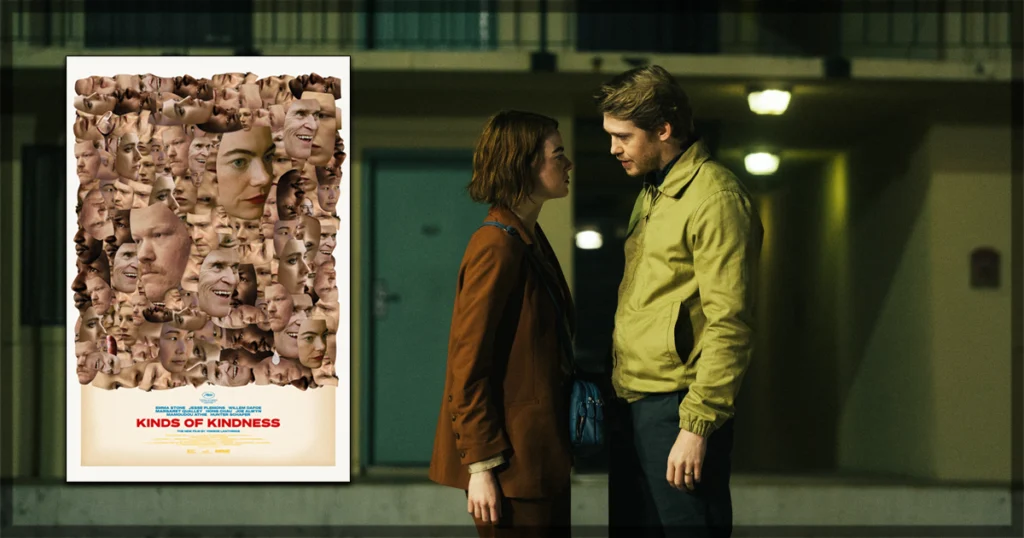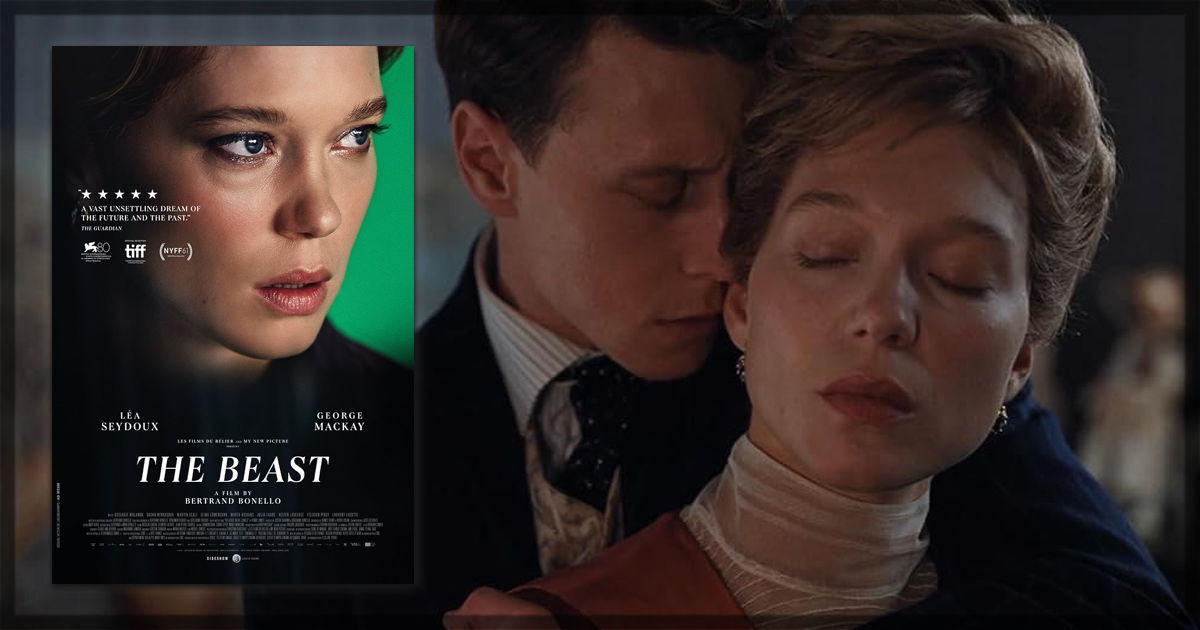The art-house multiverse is here, but this is not necessarily a good thing. The entire point of a multiverse is to enhance the ways in which people engage with each other, whether across time, the planets, or weird dimensions, and to offer space for human interaction not bound to the laws of physics. But the ways this is developed in The Beast is only the most misogynistic of all possible worlds, and the more you think about it, the more depressing it is.
How the masculine fantasy of The Beast Unfolds
When we first meet Gabrielle (Lea Seydoux), she’s an actress in 2044 when it’s believed that our past lives can damage our DNA, or something, the cure for which is undergoing a purge of your unconscious memories, or something. So she undergoes said procedure, and suddenly we’re blipping through time, most prominently when Gabrielle – same name, same actress, but different self – was a musician and factory owner’s wife at the time of the Parisian floods of 1910 and/or an unsuccessful model housesitting in Los Angeles during the earthquake of 2014. In all these timelines, she meets a man named Louis (George Mackay, who also works bilingually in French and English). In Paris, he’s a fervent admirer; in Los Angeles, he’s an incel who starts stalking Gabrielle, and in the future, he’s also just kind of around. The implication is that his unwanted attention has followed Gabrielle through time, and regardless of what she does, she will never escape him.
This is a depressing treatise made worse by a ponderous tone, sluggish pacing, and a tendency to belabor its points. Gabrielle never creeps anxiously down one hallway when she could creep down three, and the fact the timelines are interwoven provides a strange sense of stasis. It’s like realizing there’s a winter blanket on top of an afghan on top of the duvet and being unable to get out of bed.
It’s an unpleasant experience, not helped by Ms. Seydoux’s fiercely interior acting style. It’s kind of like Inception, thoughts within thoughts within thoughts, only here it’s very difficult to get a sense of what Gabrielle is thinking or feeling as director Bertrand Bonello clearly asked Ms. Seydoux to tamp down her expressiveness. She’s most able to show off her acting abilities in the futuristic sequences, but overall she’s an oddly muted presence, unhappy and reacting inappropriately to the circumstances she’s in. Mr. Mackay does better work in an easier part; his Louis is meant to be unpredictable and a little menacing, and his haunted looks and sinewed physicality provide a lot of that for him.
All that said, there’s a dreamlike sequence in a flooded doll factory, which is also on fire, that’s worth the price of admission. It’s so strange and haunted, and Ms. Seydoux is so underdressed, that you’ll watch it holding your breath. It holds up to no logic whatsoever, but sometimes movies exist around images and even the most turgid creation can be justified if the images are worth it.
In that sense, Mr. Bonello, who co-wrote the script with Guillaume Bréaud and Benjamin Charbit, have delivered a better movie than Piero Messina did with the similarly misogynistic arthouse multiverse Another End. It would seem that trapping women in situations from which they cannot escape is a pretty universal masculine fantasy.
If you think about it along those lines, the metaphor of the title makes sense. The beauty Gabrielle can be reborn a million times and regardless of what she does or what she wants, Louis will be waiting for her. It’s a repulsive idea, and The Beast is no fairy tale by any stretch of the imagination. Unfortunately, it’s also too poorly paced to be a horror movie, meaning it’s just unpleasant. And this is without getting started on the sexbot played by Guslagie Malanda. Women everywhere, throughout time, deserve better than this.
The Beast is now in UK theaters.
Learn more about the film at the IMDB page for the title.
You might also like…

‘Kinds of Kindness’ Review: A Remarkably Sour Film from Yorgos Lanthimos (Cannes)

